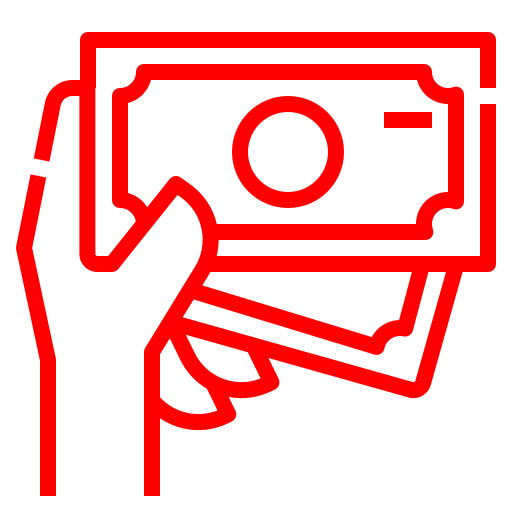Master’s Degree in Construction Management, under the same rigorous academic proposal as the face to face version. Its main objective is to develop technical, management and leadership skills in professionals who have been managing projects in the sector. Its Blended dictation modality will allow you to manage your time to specialize and consolidate your professional development without leaving your work and personal activities.
General Information:
Curriculum
STRATEGIC MANAGEMENT

-
Competitive Strategy
Participants are provided with the necessary criteria and tools to lead the processes of strategic formulation, understanding and enriching the political and decision-making processes involved in this task. Upon completion, they are able to design strategic plans that facilitate the acquisition of the sustainable competitive advantages required for a company’s success. -
Construction Project Management
In this course, students have a clear and broad view of the essential role of construction project management, based on the PMI® methodology. The course analyzes the project manager’s main responsibilities and focuses on the management processes related to the main areas of knowledge involved in construction projects, such as scope, time, cost, quality and risks, among others. -
Production Management
Upon completion of the course, students will be able to apply Lean Construction concepts and tools in the tasks they perform on a daily basis, proposing measurement and analysis procedures and methodologies. The concepts developed are the following: lean leadership and organization; lean project management; value stream mapping in projects. DPP; lean construction; application areas: engineering, procurement and construction -
Lean Construction
The ability to create messages with relevant content and solid arguments that are clearly connected and appropriate for different purposes and audiences. -
Safety Management and Risk Prevention in Construction
Upon completion of the course, participants will be able to lead the implementation and administration of an integrated safety and environmental management system on a construction site. The main topics covered include the following: risk factors in construction sites; integrated safety, health and environmental system; risk analysis for construction work; and worker training, among others. -
Organization and Management of a Construction Company
Upon completion of the course, students will be able to analyze the role of the construction company within the sector and to recognize its position and relative importance. They will also be able to propose the necessary strategies for the long-term development of the companies in which they work, promoting the generation of a brand and its sustainability and competitive advantage, while understanding the relationships in the construction sector between the different stakeholders. Finally, they will be able to identify opportunities for growth or new business ventures. -
Strategic Quality Management
Participants acquire the knowledge to understand and apply the general principles of quality management that are the foundations upon which the set of ISO and UNE standards have been developed. They are also capable of creating a project quality plan and managing the economic aspects associated with quality, recognizing audit management as a key tool in management, and are committed to a continuous quality improvement.
PLANNING AND RESOURCES

-
Human Resources Administration and Management
Students analyze, diagnose and evaluate solution alternatives to make decisions regarding concrete situations that may arise within the organization, in order to strengthen the organization through its members. Also, they acquire the concepts and techniques to achieve the adequate preparation of a human resources management plan, which —aligned with the company’s strategy— addresses the processes that will enable them to obtain, develop and maintain the intangible capital of their organizations. -
Project Planning and Control
In the course, students understand the challenges of managing production in complex multidisciplinary projects in remote locations as well as in building projects in large cities with easy access. At the same time, it develops the actions and strategies that must be followed to plan and control projects, so that this results in efficient and effective production in both types of projects. -
Supply Chain Management
Participants acquire the supply chain and logistics concepts related to construction, and their importance as a means of improvement in the construction process. In addition, participants are able to identify the benefits of integrating the various agents involved in the production process (contractors, subcontractors and suppliers) as a product of the implementation of supply chain management. Finally, they apply tools and techniques for the adequate planning, organization, management and control of the supply chain and logistics in construction. -
Equipment and Machinery Management
Participants understand the fundamentals of asset management in order to evaluate the equipment requirements of an earthmoving project and to properly select the required machinery. In addition, they are able to calculate a cost and rate structure for the equipment, as well as to know the methodology to implement a correct maintenance system to maximize the productivity of the equipment. Finally, they understand and appreciate the fundamentals of the DMAIC process applied to continuous improvement in asset management.
TECHNOLOGY AND INNOVATION
-
BIM Management
Students will be familiar with the new BIM (Building Information Modeling) tools for their application in the constructibility and compatibility of technical information, so they can be used in a project from the conceptual phase to the work execution, adding value to the project by minimizing errors in the transfer of information and reducing the incompatibilities of technical information. -
Special Constructions and Innovation in Construction
Participants analyze and evaluate technological innovations in which the industry’s cost and performance aspects are considered with the purpose of making it more competitive. This course addresses the following topics: innovation management and construction technology, construction production chain, technological innovation, industrialization in construction, labor productivity, industrialized construction systems types, implementation of rationalization and innovation in construction, among others.
PROJECT MANAGEMENT
-
Financial and Costs Accounting
Participants acquire project management knowledge and tools for the accounting area applied to real estate management, through the development of the concepts of the accounting process of a company, the analysis of the financial statements and the model of a balance sheet of a real estate company, as well as the financial ratios. -
Financial Management
Upon completion of the course, participants understand the financial function of a company, in order to analyze its financial flows over time. In addition, they develop the ability to analyze, evaluate and decide investments, or to take different forms of indebtedness. Thus, they acquire the tools to analyze basic financial statements and manage profitability indicators. -
Public Investment Projects in the Construction Industry
Upon completion of the course, participants are familiar with the methodologies for the comprehensive management of the cycle of public investments, in accordance with the standards of the National Public Investment System (SNIP), in order to create and submit projects for the public sector. This course covers the following topics: public investment projects and life cycle; the National Public Investment System; formulation of public investment projects; criteria for the evaluation of public investment projects; procedures for financing, programming, monitoring, resource management, contracts and ex-post evaluation; and projects under public-private partnership. -
Formulation and Assessment of Real Estate Projects
Participants develop the necessary skills and abilities to interpret, analyze and resolve the financial aspects of those situations that a company is normally faced with when making decisions, both internal and external. Therefore, this course trains students in the use of financial concepts, procedures, techniques and criteria to be applied in the creation and evaluation of projects. -
Infrastructure Investment Project Management
Participants acquire tools and knowledge to face in an orderly and planned manner the projects in which they participate, organizing teams that seek excellence in their actions and in which they value the practice of continuous improvement in the management and product development processes.
LEGAL ASPECTS
-
Legal Regime in Construction
Upon completion of the course, participants identify the relationship between construction and law through a review of the legal tools in construction and the responsibility framework of the parties involved, being able to analyze what rules and/or norms have an influence in the execution of a project, and to use that knowledge in making decisions regarding contracting, inherent costs, risk mitigation strategies and controversy management. -
Technical Administration and Collaborative Contracts
Upon completion of the course, students know the technical processes related to a work contract. They will also be able to develop criteria for decision making in the execution of technical processes related to price control, deadlines, quality and contractual obligations. They will also apply technical criteria to facilitate the achievement of the work contract objectives, minimizing disputes and being prepared to deal with them, should they occur.
EXECUTIVE AND LEADERSHIP SKILLS
-
Managerial Leadership and Building Leader Teams
Participants identify, analyze, and apply the crosswise leadership elements, principles and behaviors that contribute to their own knowledge and the development of their collaborators in the business environment, thus understanding the importance of teamwork, and developing a series of skills that facilitate establishing enriching and harmonious relationships. -
Negotiation
Upon completion of the course, students will identify and be able to apply ways of solving conflicts inherent to the business world by using systemic thinking, which reconciles short-term results with sustainability over time and helps manage the trade-offs that invariably appear in complex negotiation or decision situations with multiple variables and protagonists.
INTEGRATION
-
Thesis 1
Students formulate and develop the thesis topic or business plan that will lead them to the master’s degree. Upon completion of the course, students must submit their thesis project or business plan. -
Thesis 2
Students, based on the submitted project, develop their thesis project or business plan leading to the Master’s degree, and submit the final draft of the document.
Academic Staff
Benefits
More than advantages, decisive pillars for training with a global reach.
WHY STUDY THE MASTER'S DEGREE IN CONSTRUCTION MANAGEMENT – REGIONS?
 INTERNATIONAL DEGREE AND CERTIFICATE
INTERNATIONAL DEGREE AND CERTIFICATE
Students who successfully complete the study program, support and approve the thesis, obtain the degree of:
-
Degree
- Master’s Degree in Construction Management , by Universidad Peruana de Ciencias Aplicadas (UPC).
-
Certificate Internacional Optional
- Certificate in Advanced Topics in Lean Construction and BIM Management, awarded by Universidad Politécnica de Cataluña.
 INTERNATIONAL DEGREE AND CERTIFICATE
INTERNATIONAL DEGREE AND CERTIFICATE

Students who successfully complete the study program, support and approve the thesis, obtain the degree of:
-
Degree
- Master’s Degree in Construction Management , by Universidad Peruana de Ciencias Aplicadas (UPC).
-
Certificate Internacional Optional
- Certificate in Advanced Topics in Lean Construction and BIM Management, awarded by Universidad Politécnica de Cataluña.
 UPC EDUCATIONAL MODEL
UPC EDUCATIONAL MODEL
Model that combines theoretical contents and their application in a precise manner, focusing on students as leading characters who shape their own knowledge. From real cases and business simulations to workshops and keynote lectures, this model's techniques provide solutions to real problems in organizations.
 UPC EDUCATIONAL MODEL
UPC EDUCATIONAL MODEL

Model that combines theoretical contents and their application in a precise manner, focusing on students as leading characters who shape their own knowledge. From real cases and business simulations to workshops and keynote lectures, this model's techniques provide solutions to real problems in organizations.
 COMPETENCY-BASED CURRICULAR STRUCTURE
COMPETENCY-BASED CURRICULAR STRUCTURE
Through the curriculum, we guarantee the development of relevant competencies, aligned with the local and global markets and society's demands. As students, you will acquire and internalize a set of abilities, attitudes and knowledge related to professional and personal development areas, which will allow you to efficiently solve problems, lead organizations and transform your environment.
 COMPETENCY-BASED CURRICULAR STRUCTURE
COMPETENCY-BASED CURRICULAR STRUCTURE

Through the curriculum, we guarantee the development of relevant competencies, aligned with the local and global markets and society's demands. As students, you will acquire and internalize a set of abilities, attitudes and knowledge related to professional and personal development areas, which will allow you to efficiently solve problems, lead organizations and transform your environment.
 DEVELOPMENT OF MANAGEMENT AND LEADERSHIP SKILLS
DEVELOPMENT OF MANAGEMENT AND LEADERSHIP SKILLS
The program improves leadership and managerial skills, which are decisive in managing organizations. A systemic training that transforms and differentiates the executive, thanks to the joint development of intellectual, social and emotional components.
*Trips are optional, have an additional cost and are subject to change. The agenda and the companies to visit may vary.
 DEVELOPMENT OF MANAGEMENT AND LEADERSHIP SKILLS
DEVELOPMENT OF MANAGEMENT AND LEADERSHIP SKILLS

The program improves leadership and managerial skills, which are decisive in managing organizations. A systemic training that transforms and differentiates the executive, thanks to the joint development of intellectual, social and emotional components.
*Trips are optional, have an additional cost and are subject to change. The agenda and the companies to visit may vary.
Advantages
* In accordance with our continuous update policy, the curriculum is subject to modifications.
Graduate profile
As program graduates, you will become professional leaders and agents of change in the construction and real estate sector, capable of identifying opportunities and innovating in the use of technologies, materials and management methods to offer concrete solutions to real problems in the industry.
Take the next step and dare to go beyond!
Start: August 17, 2023INFORMATION AND REGISTRATION
ADMISSION
GENERAL INFORMATION
Requirements for application
- Academic Bachelor's Degree registered with SUNEDU.*
- Relevant work experience, minimum 3 years.
Documents to submit**
- Legalized photocopy of the Bachelor's Degree.***
- Copy of DNI, Passport or Immigration Card.
- Photograph with a white background, taken from the front (from the chest). Size 240 x 388 px, maximum 50 KB in JPG format.
- Essay (Format: A4 sheet. Font: Arial 11 spaced and a half. Margins: Top and Bottom 2.5 cm., Right and Left 3.0 cm.):
- First part related to their self-knowledge: between 400 (1 side) and 600 words (1.5 sides). Express who you are and how you came to be the person you are today.
- Second part related to your academic interests: between 400 (1 side) and 600 words (1.5 sides). How do you expect academic experience to contribute to the relationship of your ambitions?
- Admission Formats:
- Receipt or payment voucher for admission fees (S /. 350 nuevos soles). To make the payment enter here
Evaluations
Applicants must pass the following evaluations:
- Personal interview****
- Interaction Skills Assessment
- Technical Skills Assessment
- Strategic Skills Assessment
Regulations
- Regulations for Postgraduate Studies
- Academic Administrative Regulation
- Student Discipline Regulation
- Regulation of Academic Degrees
- Regulations of the Research Ethics Committee
- EPG Admission Policy Regulation
- Second Language Requirement
Documents to present
Registration formAdmission request
Two letters of reference
* In case the applicant has studied abroad, they must present a notarized copy of their degree or title that is a prerequisite in their country of origin to carry out postgraduate studies.
** The documentation that is presented is evaluated by the Admission Committee that determines if the applicant meets the expected level of the program participants.
*** The following documents must be presented in physical form: academic degree, registration form, application for admission. The rest can be sent to the consultant via e-mail.
**** The interview takes place with a Director of the UPC.
* The UPC reserves the right to cancel the program if it does not reach the minimum number of admitted students until the same day the program begins.





